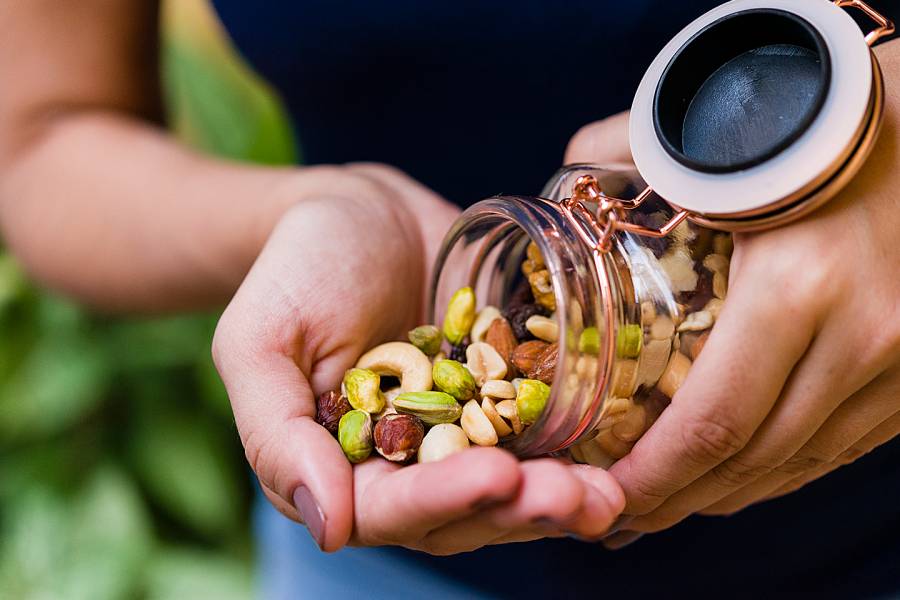This content is provided to Johns Hopkins employees through a partnership between mySupport and Resources for Living. The source of the information is the American Dietetic Association.
There is much truth behind the phrase "stress eating." The fact is, hunger is only a part of why we eat. Eating is also a way to distract ourselves, to relieve tension, and to give comfort. Many of us eat more—or less—than is healthful because of stress.
Why you can't eat
Stress and the digestive system are intimately connected. In the "fight or flight" response to stress, hormones tell the stomach to either shut down or speed up while the body responds to danger. That's why you lose your appetite or feel nauseated when you're in a dangerous situation. High levels of stress can trigger a constant level of anxiety in which you literally can't choke down food.
Why you eat too much
On the other hand, the milder anxiety of less-intense stress may trigger excess eating for distraction, comfort, or tension release. And when you're under stress, you're more likely to eat fast, to eat high-calorie foods, and to eat more often. For the small portion of the population with true eating disorders, such as anorexia, bulimia, and binge eating, stress can trigger a relapse.
What you can do
Consuming a healthful diet is possible, even when your schedule is tight. Plan meals ahead of time to avoid eating on the go or making on-the-spot decisions. Make a grocery list of the healthful foods you enjoy and stock your house with them. Keep a supply of low-calorie snacks handy at work. Try not to skip meals and aim to eat every four to five hours to control your portions. Avoid caffeine.
Try to keep a food journal for at least seven days. Record what foods and beverages you eat along with the portion or amount and, most important, how you feel at the time. Were you very hungry, mildly hungry, or maybe not hungry at all? This will help you become more aware of why—as well as how much—you are eating.
Managing stress
If you find that you eat when you are stressed, try to break the cycle—continuing it makes weight control and weight loss difficult.
Negative changes in eating habits are a sign that all is not well in your life. If your weight or eating habits have changed as a result of stress, you can be sure that your health is being affected in other ways as well.
Take a look at your lifestyle and see if there is anything you can change to make it less stressful. Take some time to think of activities that you can do to help manage or reduce your stress levels. Choose things that don't involve food or beverages, such as exercising, reading a book, watching a favorite movie, or taking a hot bath, a long walk, or a bike ride. Learn coping techniques such as meditation, visualization, and progressive muscle relaxation.
All these ideas can help you manage your stress and therefore reduce the stress eating. Life will continue to bring on stress, and how you choose to deal with it will impact your weight and overall quality of life.
Need more resources?
Check out Resources for Living, which has more information. Username: JHU. Password: JHU.
Make your mental well-being a priority. Johns Hopkins' employee assistance program, mySupport, is here 24/7, 365 days a year, for you and your household family members, as well as children up to age 26 who are living away from home. Call mySupport at 443-997-7000, option 2, for free, confidential help and referrals for any emotional or mental health concerns you may have.
Posted in Health+Well-Being
Tagged hr newswire








